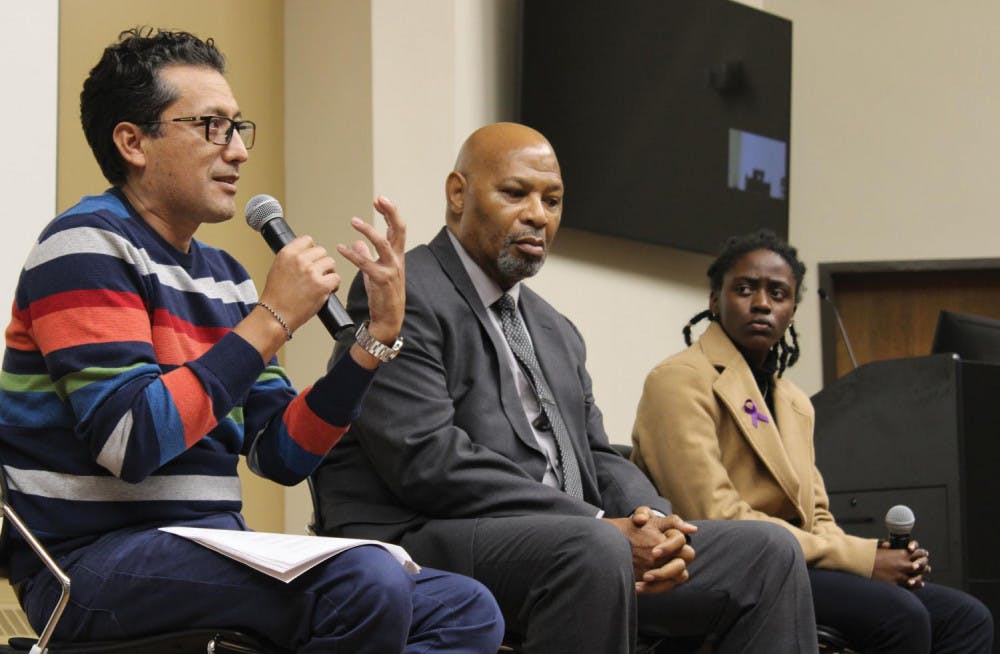This is a letter to the editor submitted by members of the faculty at Mercer University. It does not reflect the views of The Cluster, Mercer University or faculty members not listed.
Dear Mercer Community,
A recent campus debate presented opposing and forceful arguments about whether ‘social justice is just.’ The debate was intended to provoke conversation and to demonstrate the benefit of the university as a “marketplace of ideas.” However, we are deeply concerned that some of the arguments promote misleading, uninformed, and harmful perspectives.
Problem 1: Historical ignorance
Saying that “there is no systemic racism in the United States” ignores both the American present and past. American capitalism and economic supremacy are the products and legacy of slavery (documented in The New York Times’ 1619 Project). After the Civil War, federal housing, land, and loan policies all were designed to limit opportunities for African American citizens (see, for example, the practices of red-lining and of convict leasing), and continues now in ways more numerous than can be recounted here (see “The New Jim Crow” or the film “13th” as starting points). Thus, the seemingly unsolvable socioeconomic disparities between white and black residents of Macon today illustrate the deeply entrenched systems that did and continue to promote inequality. Schools, neighborhoods, and opportunities to accumulate capital are segregated by matter of law, policy, and practice. These are the results not of individual racists, but rather of structural practices.
Problem 2: Flawed logic
The purported justification for the statement that there is no systemic racism was two-fold: 1) over time, much of life has improved for African Americans and 2) some studies demonstrate equitable treatment of African Americans. The first amounts to a non-sequitur, equivalent to concluding that because we have treatments for cancer, the disease is no longer a threat. The second is a perfect example of the logical fallacy of hasty generalization.
Problem 3: Gross misuse of terms
At the same time as the existence of systemic racism was denied, the word ‘slavery’ was egregiously mis-appropriated to describe taxes. This usage is dramatic—and dramatically misleading. Comparing taxes to a life where all labor is unpaid and all choices are removed is a false equivalency. This distortion invalidates the experiences of both those whose ancestors suffered as a result of the African slave trade, and the millions of people whose lives are currently destroyed through sex trafficking and other forms of modern slavery.
Furthermore, in the context of a debate on social justice, the use of a judicial definition of justice (as the impartial application of laws) reduces justice to existing case law. This ignores the fact that laws were and are designed to institutionalize inequality (see Point 1 above). Social justice endeavors to assure true equity for all individuals, even in an unequal society, thus attempting to render our world morally just.
Problem 4: Misuse of statistics
The claim that African American citizens constitute only 13% of the US population but commit half of crimes is also deeply problematic. That statement confuses conviction rates (which are available) and actual crime rates (which are simply unknowable). Simply being African American increases the risk of involvement in the criminal justice system. Research has extensively documented that African American neighborhoods are more likely to be patrolled by police. African Americans are thus more likely than other groups to be arrested and convicted. They receive longer sentences and with less chance of parole. A study of New York City’s ‘stop and frisk’ policy showed that African-Americans were more likely to be searched than Whites, but when searched African Americans were actually less likely to carry drugs than Whites. The over-representation of African Americans in the criminal justice system is thus a symptom of systemic racism, not of inherent criminality; to imply otherwise is to re-victimize victims.
Further, to promote that particular statistic feeds into a tired narrative of the black community as diseased. But statistics, like Bible verses, can be selected to tell vastly different narratives. Other statistics could be highlighted to tell the story of African-American communities’ resilience and strength. For example, black fathers are the most involved parents of all recorded race and ethnic groups, whether living in the same home as their children or not.
Problem 5: Misuse of authority
To approach a complex issue from the sole perspective of one sub-discipline or using one type of model leads to such a narrow understanding as to be both sorely incomplete and misleading. With the authority of a faculty role comes the responsibility to engage in due diligence, including understanding the larger landscape outside one’s disciplinary training.
A university is a marketplace of ideas, but it is also a community of learners. These ill-formed arguments, presented under the guise of academic debate, were deeply hurtful to many Mercer students of color–students who incur the burden of harmful stereotypes simply because of the color of their skin. It is incumbent on all members of the Mercer community to educate ourselves on the historical and societal forces that shape the everyday experiences of those around us. Just as we teach our students, we learn from them.
Signed,
Jay Black
Amy Borchardt
Natalie Bourdon
Kevin Cummings
Chester Fontenot
Keegan Greenier
Matt Harper
Kedrick Hartfield
Michele Prettyman
Amy Nichols-Belo
Shan Ran
Tanya Sharon
Laura Simon
Margaret Symington





